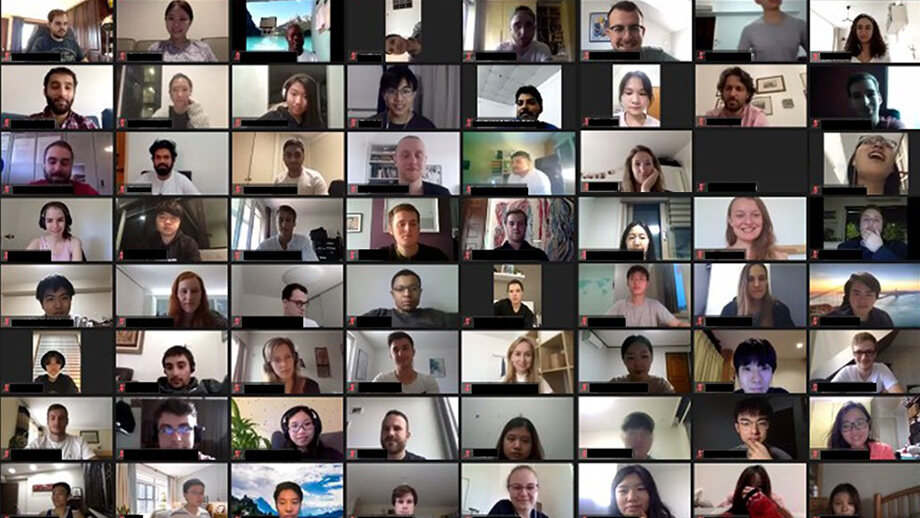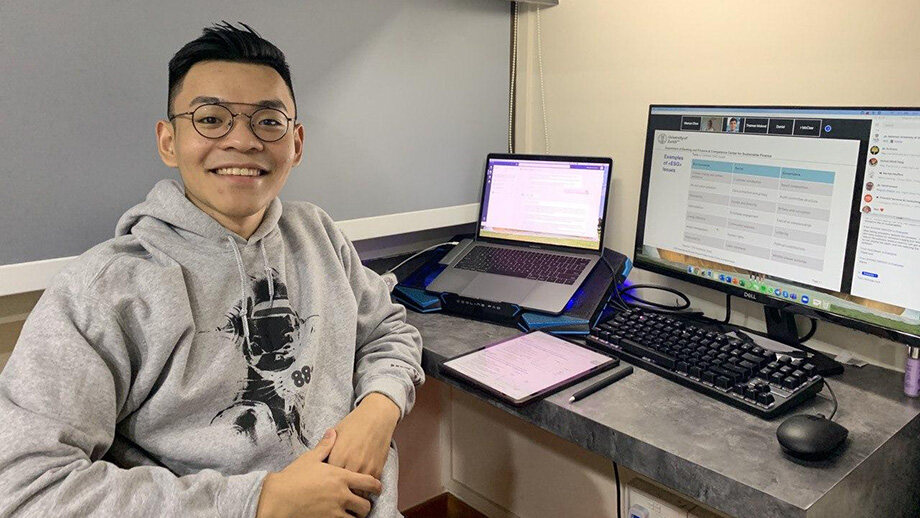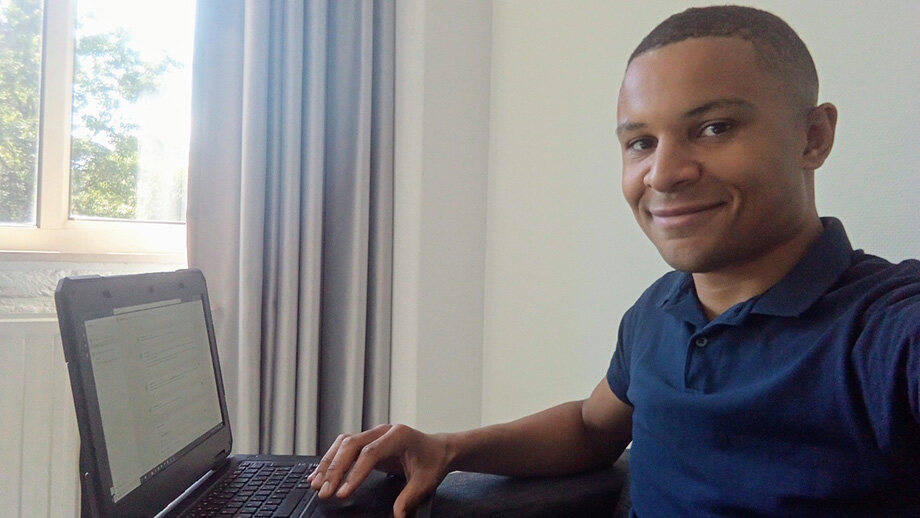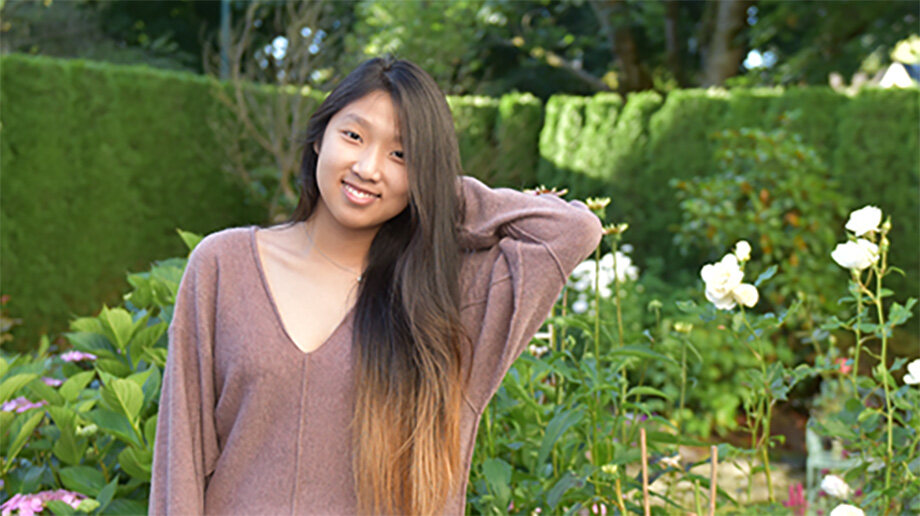The UZH International Summer Schools for Bachelor’s and Master’s students from around the world are currently taking place for the third time. The difference this year is that they are taking place entirely online. Students from a total of 54 different universities will learn about Switzerland, blockchain and more.
Raphael P. Borer


Many students are keen to gain knowledge and expand their horizons during the summer break. But unfortunately this year due to the Covid-19 pandemic, attending classes in Zurich is impossible. This doesn’t appear to have put people off, however: Participant numbers in the UZH International Summer Schools have doubled on last year.
Thanks in large part to the great commitment of the teaching staff, it was possible to transfer all the summer schools to digital formats. “Although the participants cannot be on-site this year, the summer schools have attracted interest from students all over the world,” says Carmen Richard of the UZH International Relations Office, which organizes the International Summer Schools together with the individual departments and institutes. The increase in applications may in part be down to the fact that the courses can now be accessed online from anywhere. But in addition, the subjects offered have great current relevance: “Topics such as blockchain and sustainable finance are very popular with students,” says Richard. No traveling means lower costs, as the students do not need to pay for accommodation for three weeks in Zurich. The online format is thus enabling a wider range of students to take part in the summer schools.
Popular courses
The various programs offered as part of the UZH International Summer Schools give Bachelor’s and Master’s students a brief but intensive insight into research and teaching at UZH.
One of the courses, “How Switzerland Got Rich”, is running for the third time this year. Professor Patrick Ziltener of the Institute of Sociology teaches students about Switzerland’s development from the perspectives of sociology, economics, politics and history. New this year is a comparative approach whereby the students investigate what factors influence a country’s success and find out why different countries react differently in crises such as a pandemic.
The course “Finance for the Future: Sustainable Finance and FinTech”, which is taking place for the second time, deals with the future of finance and banking in times of digital transformation and sustainability. A new course this year is “Deep Dive into Blockchain – Linking Economics, Technology and Law”. Worldwide experts will introduce students to the field of blockchain-based systems from a multidisciplinary perspective, focusing on cryptocurrencies.
Intercultural experiences despite virtual classroom
Alongside the academic content, students and instructors have the opportunity to interact despite the physical distance. The social program includes various online events in which participants can explore different issues such as the effects of the current crisis. In round-table discussions with experts from UZH, topics such as the economic consequences of the COVID-19 pandemic or ethical aspects in medicine will be tackled.
Also part of the social program is the three-part workshop on the subject “Effective Communication & Collaboration” presented by experts from the Robertson Center for Intercultural Leadership at UC Berkeley.
“In addition to these events, we have also come up with challenges that the students can either complete alone or in groups,” says Carmen Richard. The aim is for participants to actively engage with one another outside of the virtual classroom and discover other points of view. Summer schools are often the first experience of studying abroad for many young people and students, and Carmen Richard and her team aimed to recreate the experience online this year. “A program like this gives students the chance to build up their networks, make new friends and have new experiences in an international community – we wanted to provide a similar experience digitally,” says Richard.
Read students’ reflections on this year’s online summer schools below.


“I chose to sign up for this summer school because of my interest in finance. This course promised to educate us on Sustainable Finance and Fintech, both of which are the future of the financial industry. It has been just over a week since the summer school started and I have learned how technology is incorporated into the financial space (InsurTech & PropTech) as well as the focus of ESG in emerging markets.
Despite it being the first time the summer school is held online, the team at UZH ensures that information is relayed to the students at the earliest possible time which allows us to prepare in advance for the lessons. The adaptability of the teaching staff is really commendable and the learning experience thus far has been amazing!
Lastly, the course requires us to do multiple group projects and it gave me an invaluable opportunity to work with students all around the world. The interactions that we have, discussing not just financial knowledge but also cultures in our home country, really makes this experience even more enriching.”


“I joined the How Switzerland Got Rich summer program because I wanted an explanation of some of the unusual aspects of Switzerland’s democracy, international relations and economy. Switzerland’s political organization is exceptional.
I have learned a lot: One of Professor Patrick Ziltener’s lectures which resonated the most with me was his lecture on Swiss mercenaries; I had a eureka moment once I found out that Switzerland’s coercive capacity was exported, as I am familiar from my own course (Political Science) with how the military can problematize a country’s democratic trajectory. Another important lesson was the concept of associative state building, a surprising alternative to Tilly’s war-making is state-making thesis.
So far my digital experience of the course has run smoothly. Of course, it’s not the same as being in Zurich in person, but I really appreciate that the university continued the course online rather than cancel it.
At my home university I participated in a course entitled “The Science and Life of Albert Einstein”. Admittedly, as a student of the social sciences I was more interested in his life and education rather than his science. So, if I had been physically in Zurich I would have visited the parts of Switzerland (Zurich and Aarau) that Einstein liked and which had an impact on his development and philosophical outlook, as he preferred Switzerland to his native Germany.
I also would have liked to visit the chocolate shops on Bahnhofstrasse and buy some cheese and eat plenty of Swiss food.”


Hello from Canada! My name is Yolanne and I’m part of the Deep Dive into Blockchain summer cohort. A lifetime ago when the word ‘coronavirus’ was still part of medical lingo, I applied to an intriguing program in a beautiful country – and though I dearly wish I could have explored Switzerland, here I am!
Just in my first week, I’ve learned a new programming language, puzzled through game theory, and discussed the notion of trust in blockchain technology. While it may seem overwhelming for just five days of online lectures, all my professors and teaching assistants are incredibly supportive and eager to help.
Efforts beyond the academic focus have also been a welcome surprise: we’ve already had an industry panel discussion as well as an active social program which has allowed me to virtually experience the lives of students across 22 countries.
I think I can speak for many when I say that moving to a virtual format was daunting and even discouraging news. Now though, one third of my way in, any doubts have been swept away in the whirlwind of activities this past week. I can’t wait to continue with the next two weeks, and if anyone wants share my 3am lunch…just reach out!







































